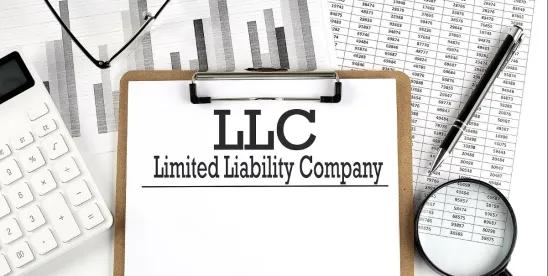Cutting ties with business partners is a delicate and often complex process.
Whether driven by irreconcilable differences, strategic shifts, or personal reasons, disengaging from business partners requires careful consideration of legal obligations and procedural requirements. In this article, we explore some of the key steps involved in terminating a relationship with business partners who are co-members of a limited liability company (LLC).
1. Review the Operating Agreement
The Operating Agreement of an LLC serves as the blueprint for the LLC's operations, outlining the rights, responsibilities, and procedures governing the company and its members. Before initiating any steps towards dissolution, review the Operating Agreement and seek legal counsel to ensure you understand the provisions related to member withdrawal, sales of member interest, and dispute resolution. If there are multiple members of an LLC, you definitely should spend the time up front to negotiate the terms of an Operating Agreement since a properly drafted Operating Agreement will save you tens of thousands of dollars in legal fees if there is a dispute regarding the LLC or if a member wants to exit the LLC.
For example, the Operating Agreement may require you to obtain approval from the remaining members or follow specific notice provisions. It may include rights of first refusal, allowing other members the opportunity to purchase your membership interest before a third party is allowed to do so. Likewise, the Operating Agreement may also include valuation methodologies to determine the fair market value of the ownership interest, which may include using appraisals or predetermined formulas.
Additionally, check to see whether your Operating Agreement contains a shotgun/buy-sell provision. A shotgun/buy-sell provision allows a member to initiate a buyout process by offering to either buy the other member's (or members') interest at a specified price or sell their own interest using the same pricing methodology. Generally, the other member(s) have the option to either (i) accept the offer and sell their interest at the proposed price or (ii) decline the offer and become the buyer at that price themselves. This mechanism incentivizes members to carefully consider their valuation of the company and can provide a swift resolution to disputes over ownership interests within the LLC.
If your LLC does not have an Operating Agreement, state law provides the default member withdrawal rules for the company.
2. Negotiate Buy-out Agreements
Buyout agreements, which are less comprehensive than Operating Agreements since they only cover buy-out terms and do not cover other business terms, such as governance rights, offer a structured framework for the LLC itself or other members to acquire the ownership interest of a departing member. This option allows you, as an exiting member, to liquidate your investment and document the termination of your relationship with the company. Consult with legal counsel to negotiate the terms of the buyout agreement, including valuation methodologies, payment schedules, which may include a return of your initial capital contribution, and release from liability.
3. Mitigate Existing or Future Liabilities
If you successfully sell or relinquish your LLC interest, you will want to ensure that you obtain a release from liabilities and obligations to the LLC and with respect to any LLC debts that you personally guaranteed. For example, members of an LLC are sometimes required to execute personal guarantees on behalf of the LLC. The end of your LLC membership does not automatically terminate your obligations to third parties for personal guaranties, so you should seek to include release language in the buyout or sale documentation. Another example: if you hold a manager role in the LLC, you will want to formally resign that role and avoid being held responsible for future duties to the LLC.
4. Prepare and Execute Legal Documents:
Work with legal counsel to prepare and execute the necessary legal documents to formalize your withdrawal from the LLC. These documents may include a withdrawal agreement, a release of claims, and any other documents required by the operating agreement. Properly documenting your withdrawal helps protect your interests and provides clarity to all parties involved in the process.
In conclusion, cutting ties with other members of an LLC requires careful planning, effective communication, and adherence to legal requirements. By following these key steps and seeking guidance from experienced legal counsel, you can mitigate potential risks and ensure a smoother transition.





 />i
/>i

